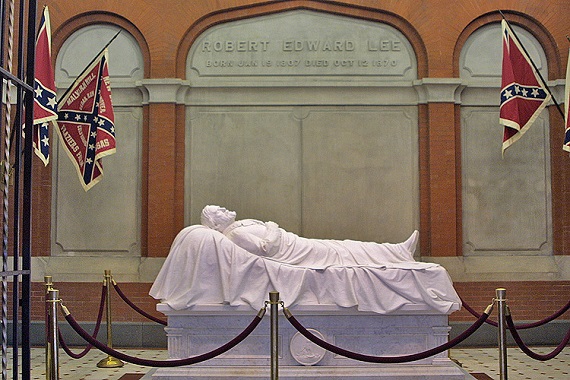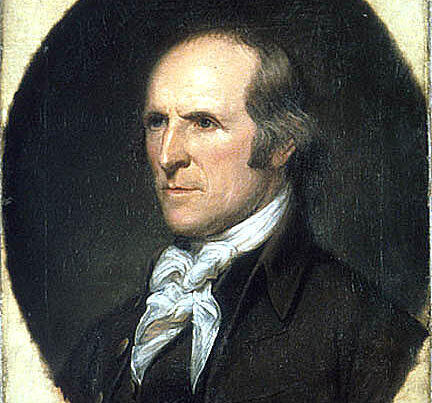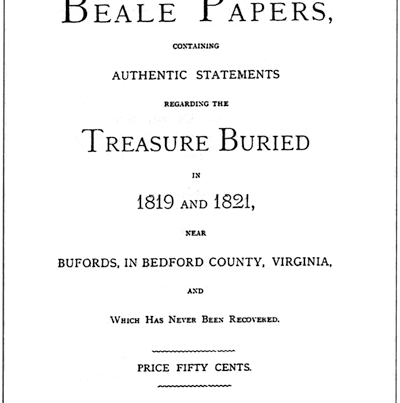
Regarding Afghanistan. There is nothing to say that has not been said better by those, both believers and heretics, better versed in the theology of the “American century,” the “rules-based world order” over which the “indispensable nation” has presided since the largely peaceful dismantling of the godless authority in Russia. And with what such shambolic and shameful consequence: the collapse of a bargain-bin Roman Empire as imagined by a screenwriters with the mental horizons sense of pornographers. That the “last, best hope of mankind” is incompetent, ineffective, corrupt, vicious, stupid, cowardly before foes and treacherous to friends should come as no surprise, particularly to that portion of the population – a not-insignificant one, perhaps even a plurality – whose memories and monuments it is desecrating. And upon whom it has declared war.
For the record: I was in the financial district on the morning of 9/11. A trading desk on the 47th floor of a skyscraper; it shuddered when the planes struck the Trade Center. I saw the gaping axe-wound in the side of the South Tower and reams of paper, gilded by the bright late-summer sun, spiraling against a sky of perfect blue. Like millions in America, I bellowed for the head of bin Laden, cheered on the invasion of Afghanistan, “stood with” our heroes in camouflage. A cousin was killed in Iraq, at the second storming of Fallujah; another cousin, his brain literally shaken by Taliban IEDs that burst beneath his Bradley Fighting Vehicle, still struggles with PTSD. And twenty years later I “stand with” the Biden collective’s decision to scurry, like roaches in the kitchen when you turn on the lights, from the “grave of empires.” And God forgive me, my soul swims in a swamp of “schadenfreude” as murky and grim as the Atchafalaya in winter, if I may deploy that wonderful German word describing the satisfaction that comes from the humiliation of a contemptible foe. It would seem that the imperial haruspices – I mean you, Walter Russell Mead, and you as well, V.D. Hanson, Bill Kristol, David Frum, Charles Krauthammer, all of you – misread the entrails on the altar, the divine mandate to “trample out the vintage” of democratic capitalism against foes sneeringly described as stone-age goatherds.
Looks like the antique traditions of these tribal primitives, and their devotion to Allah, girded them with a courage, strength and resolution utterly unimaginable in the United States.
The pathetic spectacle, and the quivering jellylike caruncles of American military men (let us recall that the likes of David Petraeus and Stanley McChrystal solicited Twitter likes by denouncing General Robert E. Lee as a “traitor”) must be seen in the context of the “national holiday” that still lands (but for how long?) in the first week of July. Between advertisements for once-in-a-lifetime savings on flat-screen TVs, Chinese lounge chairs and i-devices “designed in California” the general public was ecstatically informed by the usual lot of hectoring commissars that the American flag – “Old Glory,” the “Stars and Stripes” – is as racist, white supremacist and all the other unspeakable “ists” as the banner of the Confederacy. It must needs be replaced, post-haste, just as Francis Scott Key’s hoary jingle was largely discarded for “Let Every Voice Sing.” And why not? Times and values change, do they not? “There is no resting place, no final destination for this process. The real goal of Anglo-American civilization is to get the permanent revolution well and truly underway. We are launching a space ship, not building a rest home.”
That flag, their flag – beneath which Sherman’s hordes plundered, burned and raped their way through Georgia, beneath which the ruined South became a captive producer of raw materials and a nursery of infantrymen for the schemes of Washington and New York – never commanded my allegiance. Its degradation troubled me not in the least. The revolution – Lincoln’s revolution, the revolution of equality, of the propositional abstractions, of the word-games of the intellectuals – is devouring its own; that flag of theirs is just an amuse-bouche.
And yet, and yet. I’ve got perfectly good reasons to reject their flag. But it’s another thing entirely when Old Glory is trampled underfoot by those who have benefited the most from its “dedication to the proposition that all men are created equal.” And for hundreds of millions – no few of which are here in the South – that banner doesn’t represent an invading army, a colonial oppressor, a Tupperware of warmed-over John Locke that smells a bit suspicious. No, it stands for the primordial loyalties of family and home. One remembers New York’s Hard Hat Riots of the early Seventies, when construction workers waved it defiantly against leftist anti-war protestors, Columbia and Yale and Harvard students pandered to and cheered on by Republican Mayor John Lindsay. The hard hats were primarily Irish and Italian, the “wretched refuse” of the outerboroughs, held in utmost contempt by their Northeastern private school overlords, who with rural Southerners dominated the combats units deployed into the steaming deltas of the Mekong.
My closest friends during my time in New York City – and they remain my closest friends – were Irish. They, and the Irish in general, are as brave, loyal, noble, charitable, honorable and hospitable a people as God has ever created. My friends, like me, were a generation or two separated from the backbreaking, dirty work of the factory and the farm; their fathers had been tradesmen or cops or firemen; they’d been the first of the family to go to college and many had memories of what brought them to these shores: the “Great Hunger,” the famine of the 1840s. For them, the American flag meant, literally, life, and a better life for their posterity. For them, the “American dream” was not the invention of Edward Bernays or Voice of America propagandists. It would be uncharitable to sneer at their devotion to the Stars and Stripes and to the nation that opened its arms to them. Just as one cannot easily dismiss the American flags that decorate millions of front yards and porches throughout the conquered South.
Indeed, the American flag has become nothing less than a symbol of defiance – a sign of the realization that something has gone terribly, terribly wrong.
Could it be that the sons of Confederate veterans and Union privates, the descendants of the peasants of Georgia and Alabama and Louisiana and of Galway, Cork and Tipperary – and Northumberland, and East Anglia, and Mercia and Wessex and Wales and Cornwall, and of Lazio, Campania and Sicily, of Bavaria and Saxony and the Rhineland, all the men of the West – will unite against that that horned beast in Washington?
Many on the “right” – our friends and neighbors, who contribute dutifully to the campaign coffers of Jon Cormyn, Ted Cruz, Dan Crenshaw, Lindsay Graham – sincerely believe that (as suggested by various polls) that the Democrats, the party of the “real racists,” will be wiped out in the midterms, that an inevitable backlash will cleanse the Augean stables of Congress. And that a “restoration of the republic” will then commence.
Unfortunately, there is nothing to restore. Some of our friends are beginning to conclude, as many have many Southerners, that the state of these United States in the current year is the inevitable and entirely predictable consequence of the demon discovered in the “Founding Documents” and unleashed – first on the South, and since then upon the world – by Lincoln, and amplified first by America’s industrial might, and more lately and with far more baleful effect, by its totalitarian control of what was once known as “culture.”
Wilmore Kendall is quite correct that Lincoln’s elevation of “equality” as the teleological purpose of the American nation represented a derailment of what the Founders had in mind. But the assumptions of the Enlightenment larded throughout their various compositions provided him with the necessary tools.
In Dostoevsky’s novel Demons, the socialist Liputin – a “miser and moneylender,” a “crude family despot” who “locked up candle ends and the leftovers from dinner” and who is yet a “fierce sectarian of God knows what future ‘social harmony,’” bleats of the “universal human language,” “the language of the universally human social republic and harmony.” Stavrogin, the icy nihilist, laughs in his face. “Pah, the devil, but there is no such language!”
“There is no such language.” Dostoevsky meant the Enlightenment’s toxic phantasmagoria that made corrupt, sinful and arrogant man the measure of all things, the smirking atheism of the philosophes that thought to show God the door and liberate mankind from the idiocies of Tradition and make him a “citoyen du monde civilise” – in other words, reconstitute the being of man and the foundations of the life in the world. We should be grateful that the Founders’ Enlightenment was the English version, and thus less bloodthirsty than that of the French, or of the Marxist derivatives imported to Russia. Yes, there is much to admire about the Founders; but we must admit that the “founding” was the production of men educated in and reliant upon the philosophical principles of the Enlightenment. We can joust with footnotes until we’re blue on the question of the Founders’ embrace, or rejection, of the Calvinist Protestantism they brought from England, but it is undeniable that the God of the Founding Documents – “nature’s God” – is the God of the philosophers, the encyclopedists, the God of the watchmaker, the God of human abstractions.
Men have forgotten God, Solzhenitsyn said. And nowhere has God been more forgotten and with more apparent success than in the brutalist concrete and steel and bulletproof glass of American economic and cultural power, a process that began with Lincoln’s gnostic proposition of equality in the name of a “new nation” leavened by the blood and destruction of the South. Lincoln replaced God with an Enlightenment fiction, and made a God of the “Union,” a God that would, supported the wealth of the continent and the ingenuity of the people, bend that arc of History toward Justice. “Teleocratic politics,” in the words of Michael Oakeshott, an indefinable abstraction the highest “moral law.” With justice defined as the herding of humanity, at the point of bayonet or the lure of lucre and convenience provision of consumer products, toward the triumph of unfettered individual desire over duty, family, homeland and all of the old loyalties.
The American God – the invention, the idol, the Moloch of Enlightenment philosophes – is unnatural, unhuman, anti-human. It rejects the hard-won wisdom of the ages; it sneers at tradition; its Jerusalem is the neon-lit City of Man, a sort of Supermall of America. The Pilgrim’s Progress of the United States is the coming of Christian to the City, where, cheered on by Mr. Diversity, Mr. Inclusion and Mr. Equity, he casts off the old gods and the old ways, changes his blood and reconstitutes his being according to the prevailing perversions and degeneracies. “Do what thou wilt shall be the whole of the law.” Is the growing popularity of Satanism in the United States any surprise at all?
“What is all our histories, but God showing himself, shaking and trampling on everything he has not planted?” Oliver Cromwell once said. The Puritans get a lot of grief, much of it undeserved – their New England Unitarian and Transcendentalist descendants, deluded by Hegelian notions of the World-Spirit, are the proper objects of ire – but one cannot accuse the colonel of the Ironsides and Lord-General of the New Model Army of lacking humility before the majesty and honor of God.
I humbly suggest that a return to the “principles of the Founders” is no solution.
We cannot, we are told, recover the past, return to some old Arcadia. But we can recover the old wisdom, the virtues of our fathers.
An Anglo-Saxon poet, one of our distant fathers, described a battle between the his people and the Vikings in 991 at Maldon near the Blackwater River in Essex. Byrhtnoth, the Saxon Ealdorman of Essex, is cut down by Viking swords. The shield-wall breaks; the Saxons begin to flee. Then the warrior Aelfwine stands and rallies the warriors. Aelfwine speaks:
“Remember the speeches we bravely shared
At the meadhall tables – we boasted from the benches
That we would be heroes, hard-fighting in battle.
Now we’ll see who’s worthy of his vow,
Who’ll back up his boast in the rush of battle.
I will make known my lineage to all of you:
I come from a mighty family of Mercians;
My grandfather was Ealhelm, a wise nobleman,
A lord and landowner. My people at home
Will have no reason to reproach me for flight
From the battlefield, for seeking safety
and skulking home, now that Byrhtnoth
Lies broken in battle. This is my greatest grief –
For he was both my kinsman and lord.”
Then he went forth, his mind on vengeance,
Reaching a seafarer’s heart with his spear,
Piercing that pirate’s loathsome life.
He urged the troops on, his friends and comrades.
“I will make known my lineage to all of you.”
Aelfwine does not thunder abstractions; he does not urge his Saxon comrades to fight in the name of liberty, justice, equality, freedom, diversity, inclusion, equity or individual rights and personal autonomy. He rallies them by reminding them of who they are, and of the loyalties and duties owed to their lineage, and to their posterity. To their homes, to their land, to their people.
“I will make known my lineage to all of you.” This would be incomprehensible to the likes of Mark Milley, David Petraeus and Stanley McChrystal. But not to General Robert E. Lee, nor for the soldiers he led in battle. It’s no wonder they want to desecrate their monuments and dishonor their memory.
“I will make known my lineage to all of you.” This is tradition and it speaks to the mystic means by which we are composed of our past, guided by it, and owe a debt of honor to it – not the least of which is its transmission to our children When God spoke to Moses, He identified himself as the God of the Fathers. When Christ transfigured before the Disciples on Mount Tabor, with Him were Moses and Elijah – men, not principles, propositions or abstractions, but the prophets of the God of the Fathers.
Aelfine’s words are a trumpet-peal of clear and almost unimaginable purity over the wreck, ruin and corruption of this dark, murderous and disgraceful age.
We need to have done with abstractions, with ideals, with principles and propositions. First and foremost, we need the recovery of what the great beast has sought to take from us. There is darkness in the Old English poetry – a confession, with all humility, that “life is on loan”. In the words of The Wanderer:
Raging storms crash against stone-cliffs;
Swirling snow blankets and binds the earth.
Winter howls as the pale night-shadow darkens,
Sending rough hail-storms from the north,
Bringing savagery and strife to the children of men.
But there is honor and duty and courage, there is loyalty to our ancestors and to our posterity, and there is the God of our fathers, who stands in judgment over all of history and all of our deeds. And although darkness may seem to prevail, it too is fleeting and it too shall pass. As General Lee wrote:
The march of Providence is so slow, and our desires so impatient; the work of progress is so immense and our means of aiding it so feeble; the life of humanity is so long, that of the individual so brief, that we often see only the ebb of the advancing wave and are thus discouraged. It is history that teaches us to hope.”
Let us, like Aelfwine, make known our lineage, and let us, with General Lee, maintain our hope.







Possibly the best article I’ve read in a decade. I simply cannot disagree with any of it. Thank you, Mr. Cade and Abbeville Institute.
Mr. Cade,
Thank you this reminder of who we are and where we came from. We must fight this evil
until our last breath, and when Hell freezes over, we will fight them on the ice.
As Churchill said of Hitler, “What kind of people do they think we are!?”
The time of our reckoning seems to be close at hand. Let us show them what kind of
people we are. Let us make our lineage known.
Be
A well-written glimmer -oddly enough – of hope. There’s no cure without clearly recognizing the malady. Thank you for a brilliant piece.